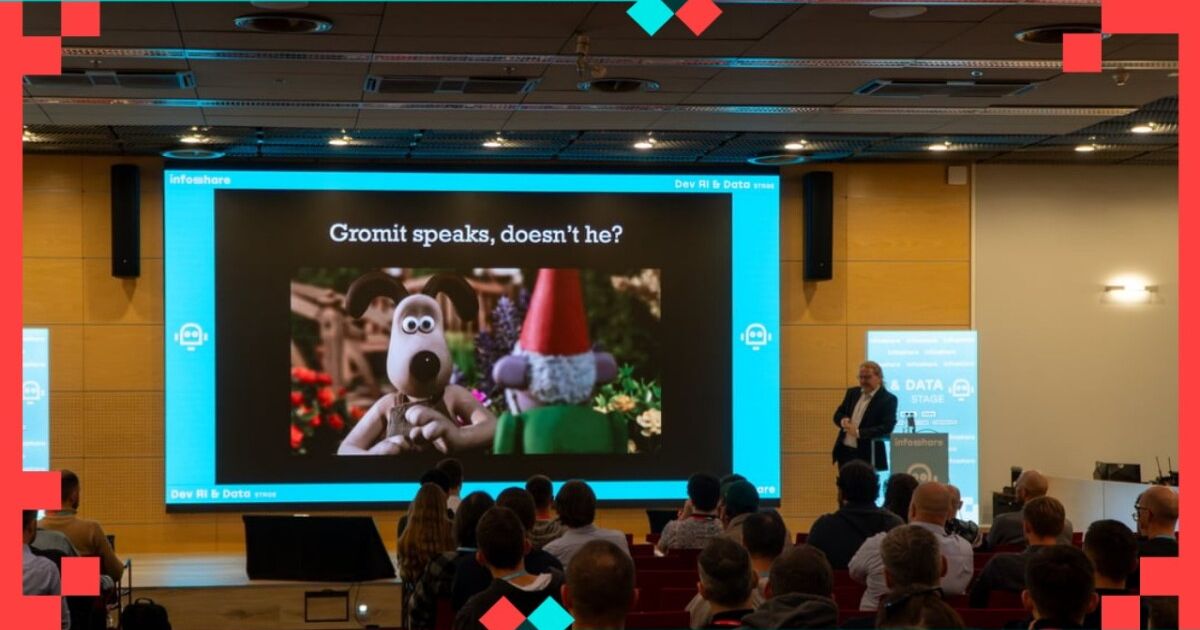VIEW SPEECH SUMMARY
- AI tools democratize creation, enabling non-experts to generate images, code, music.
- Example: Studio Ghibli style AI-generated images became extremely popular but overwhelmed infrastructure and raised ethical concerns.
- Generating content consumes significant energy and often lacks depth/lasting value.
- AI-generated art and media often mimic styles without the depth and effort that characterize traditional craftsmanship.
II. Importance of Craftsmanship and Imperfection
- Examples from film (Studio Ghibli), animation (Wallace and Gromit), and music show that deep effort and imperfections create authentic, lasting art.
- Imperfections add realism and value (e.g., lens flares in movies).
- Fast or easy content creation risks creating "digital landfill" — low-quality, disposable content lacking real engagement or meaning.
III. Lessons from Music Industry and Software Development
- Boy/girl bands as market-driven, homogeneous products contrast with grunge and authentic music born from trial and error.
- AI-assisted coding accelerates development but may create maintenance and security problems, especially if developers don’t understand the code generated.
- Importance of version control, security awareness, and understanding tools—not blindly trusting AI output.
- Developers should view AI as a tool for prototyping and ideation, not as a replacement for craftsmanship or professional responsibility.
IV. Software Development Philosophy and Career Advice
- Good code starts from a clear understanding of real problems and user needs, not from automatic code generation.
- Sharing knowledge and continual learning are essential.
- Professional developers care about security, maintainability, and quality, not just speed or volume of output.
- The future depends on whether creators invest the time to learn and improve or rely only on quick AI solutions that risk redundancy.
- Encouragement to embrace failure and iteration as part of the creative process.
V. Actionable Items / Tasks Highlighted
- Developers should:
- Use AI tools responsibly as aids for prototyping, not final production.
- Always use version control systems to manage changes and avoid overwriting code blindly.
- Understand security implications of generated code and avoid leaking sensitive keys or data.
- Focus on solving real user problems rather than quickly generating superficial solutions.
- Educate themselves and their teams about the code they produce or generate with AI.
- Advocate for time to refine and maintain code beyond initial generation.
- Embrace imperfection and learning through hands-on practice, not only automated output.
- Reflect on long-term impacts of their work to avoid contributing to “digital landfill.”
VI. Final Thoughts
- AI can do grunt work but should not replace human creativity and responsibility.
- The best creators are those who learn, improve, and understand their craft deeply.
- The tech community must resist shortcuts that undermine quality and future sustainability.
- The choice lies between becoming “boy band” style quick coders or committed solo artists building meaningful, lasting work.
Vibe coding, creativity, craft and professionalism - are we making ourselves redundant?
16:40 - 17:10, 27th of May (Tuesday) 2025 / DEV AI & DATA STAGE
Systems that allow us to create videos, images, and full immersive games chatting with an AI are all the rage. "Vibe Coding" promises that anyone can be a maker without having to have any technical knowledge. That's great and means a democratisation of digital creation, opening a whole new world of "making" to people that may have ideas, but not the means or ability. But what does that mean in terms of quality, ownership and satisfaction? Is AI moving us into a world of cookie-cutter solutions that work "well enough" and get discarded soon after creation? Or is there a way that AI can become like a creative partner that we can bounce ideas around with and still end up with a well crafted product we can be proud of?
Join Chris Heilmann digging deep into his 25 year career to bring up pros and cons of technical advancement, what development means and how to make sure your job won't be replaced by a prompt any time soon.



